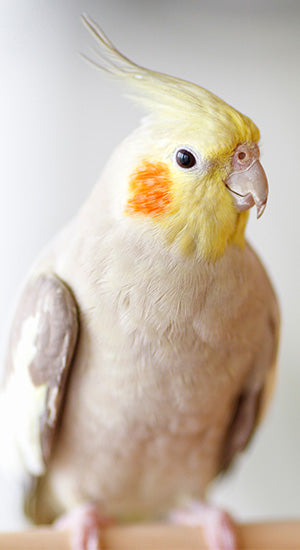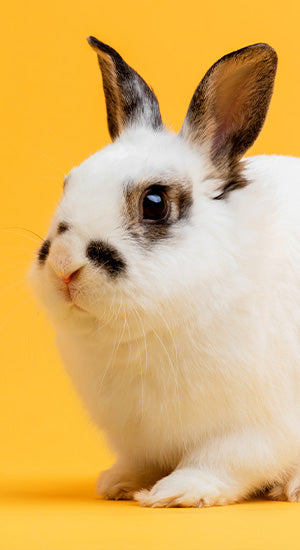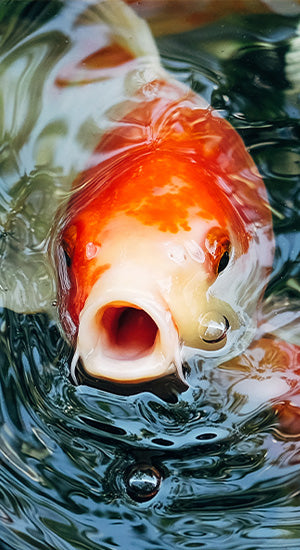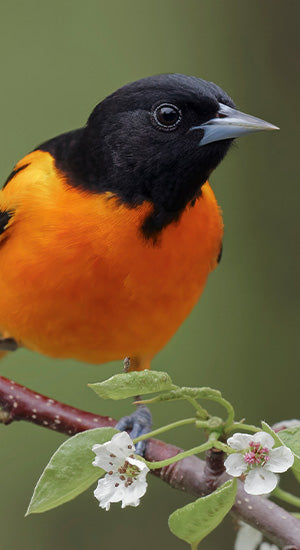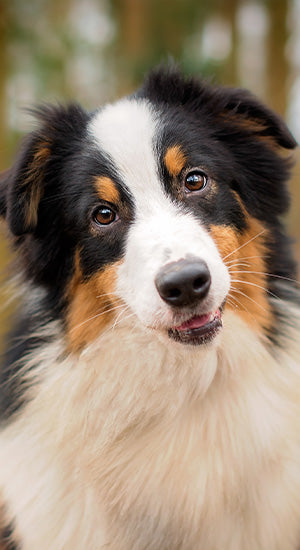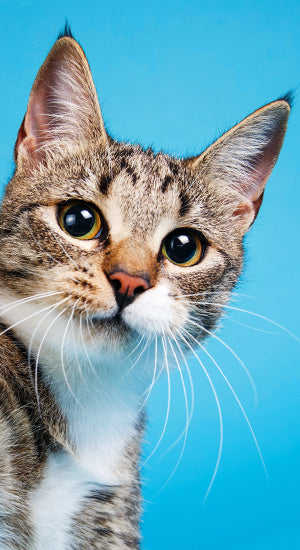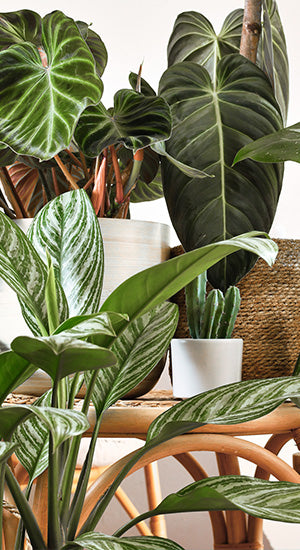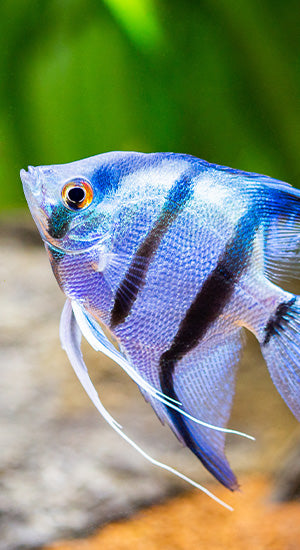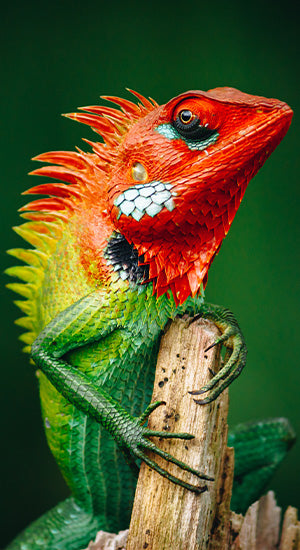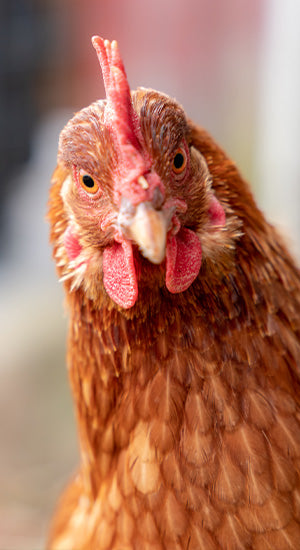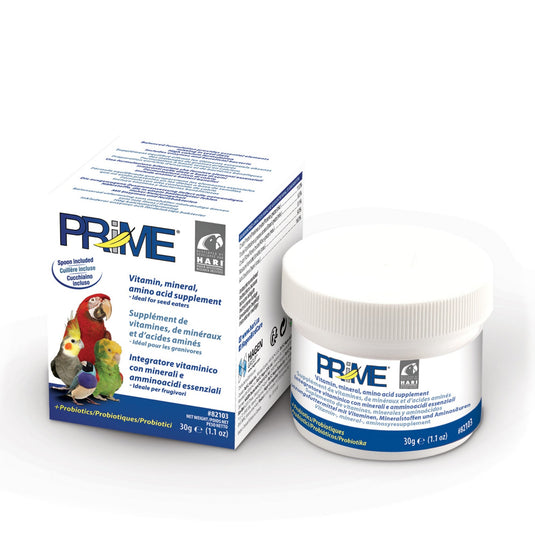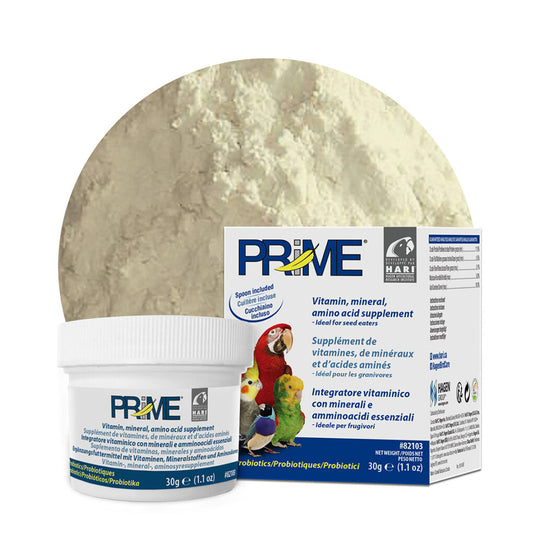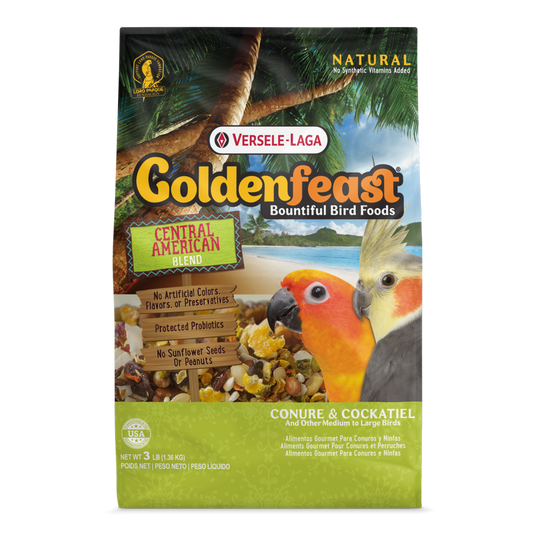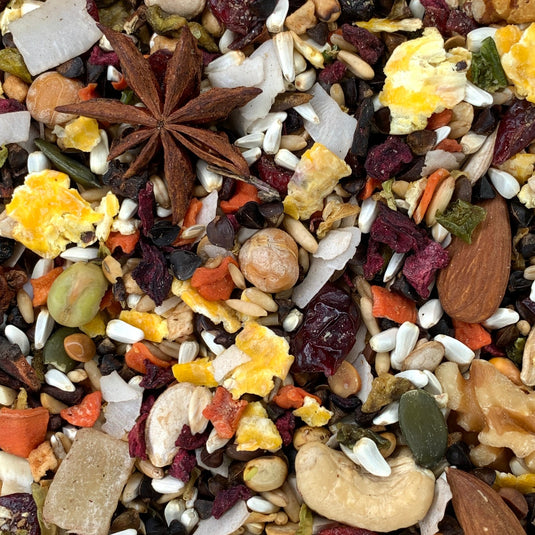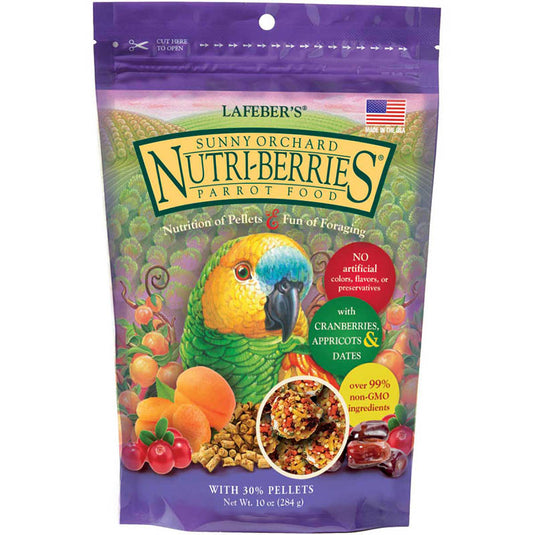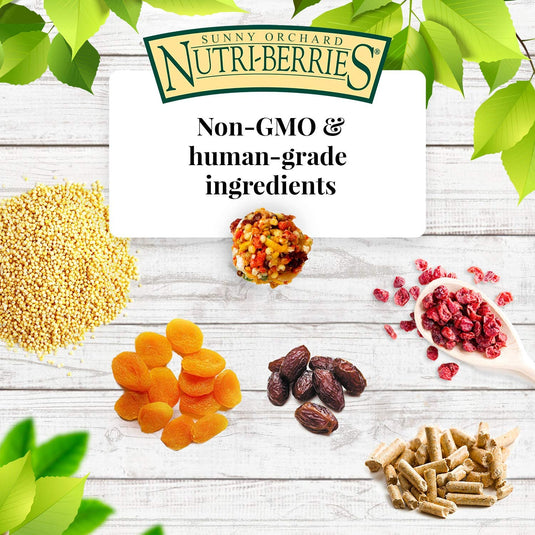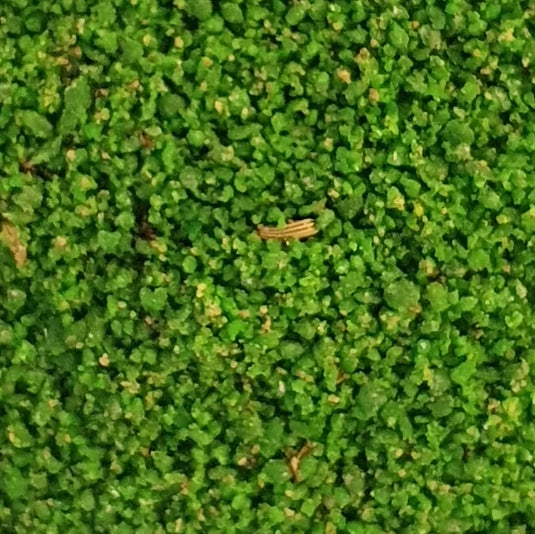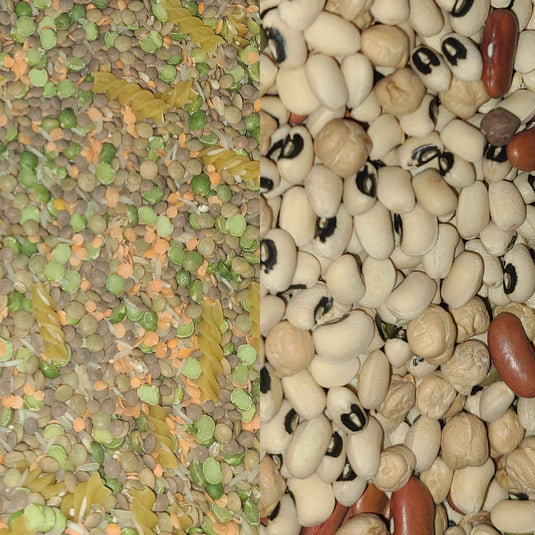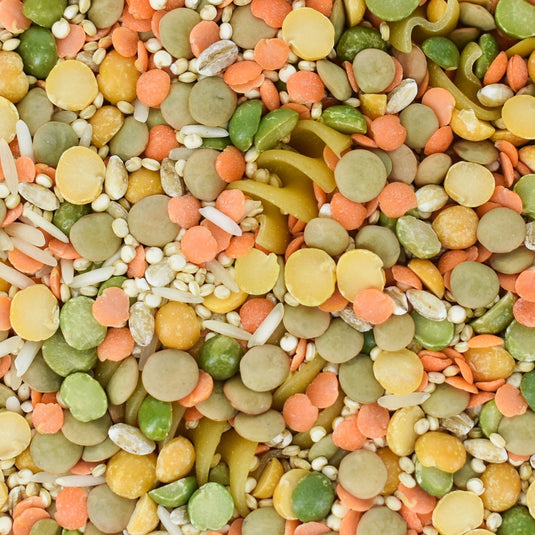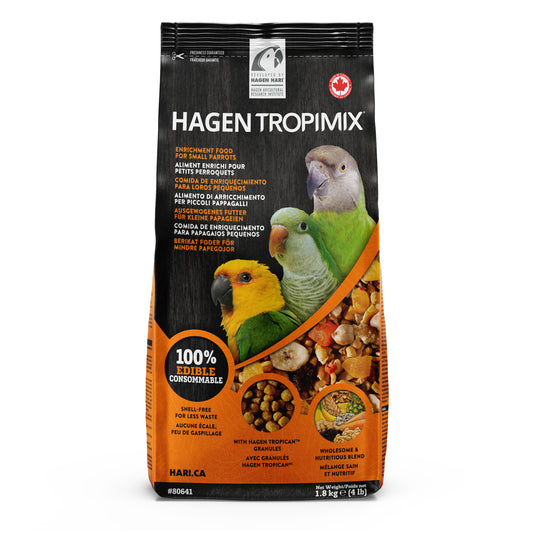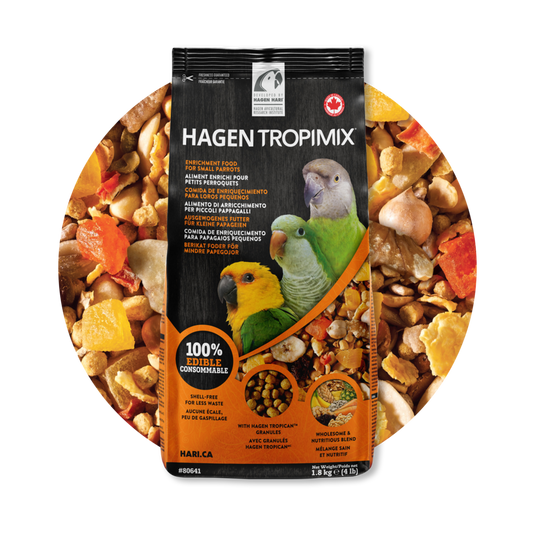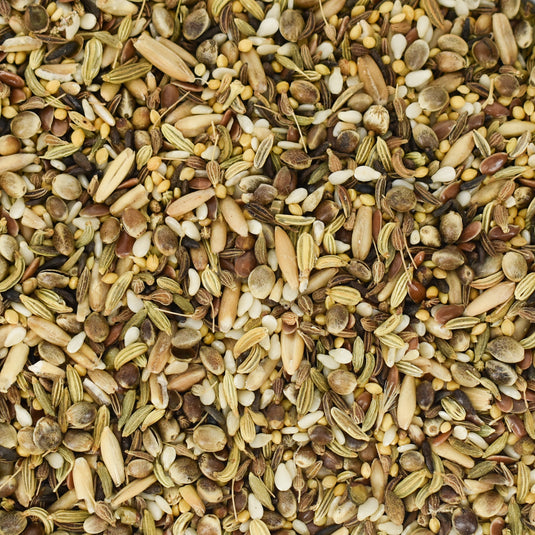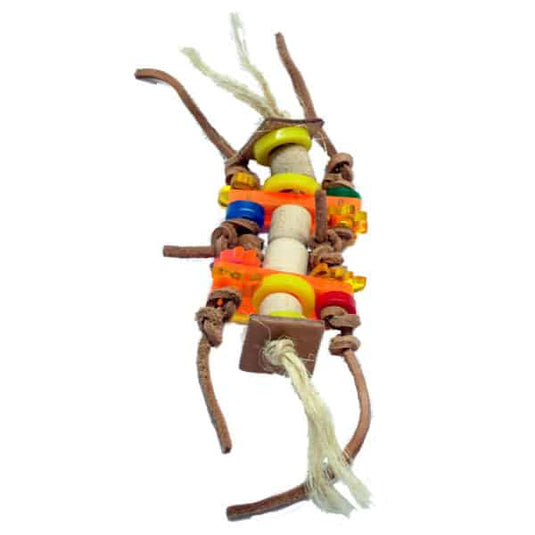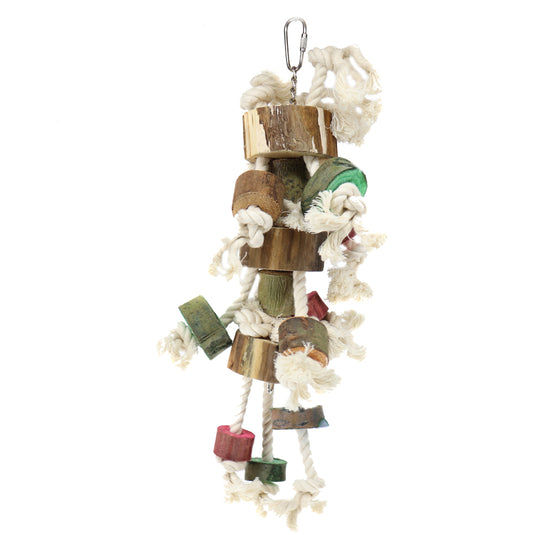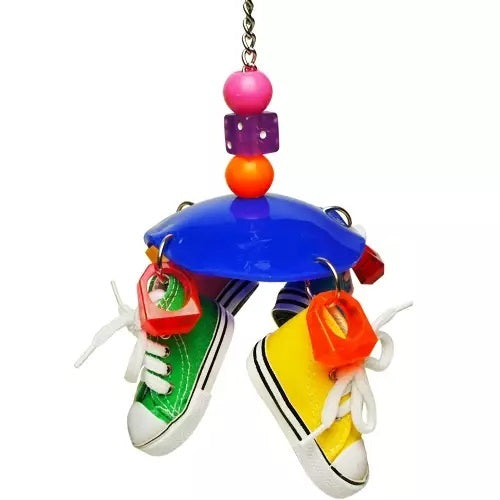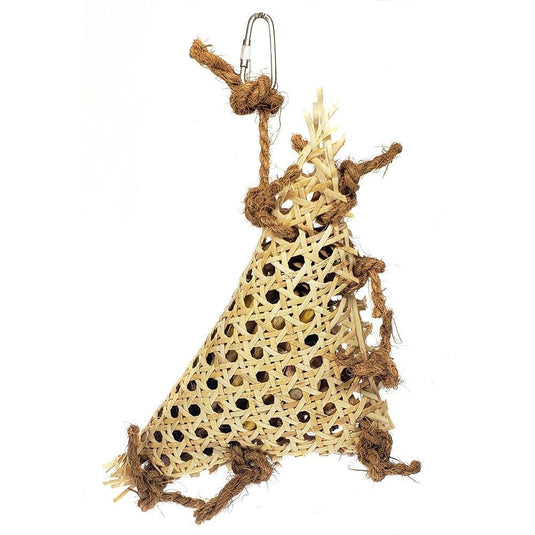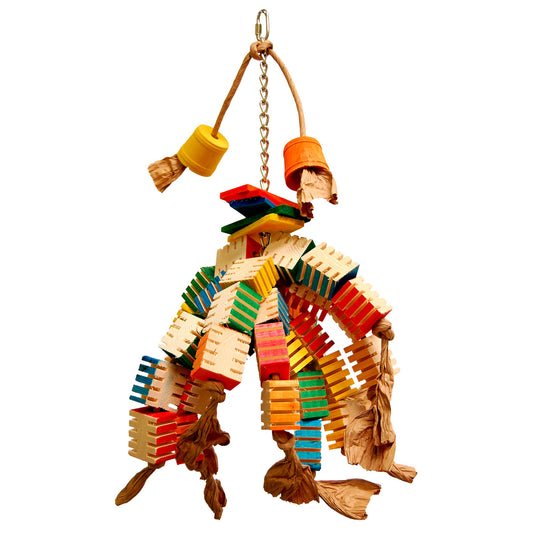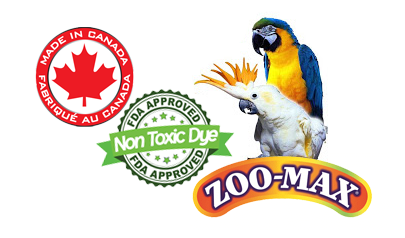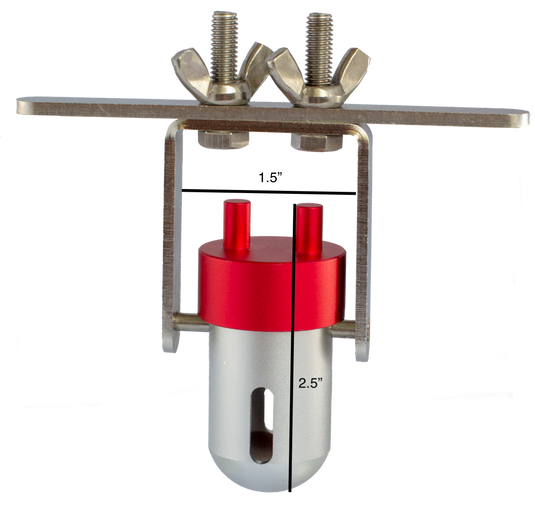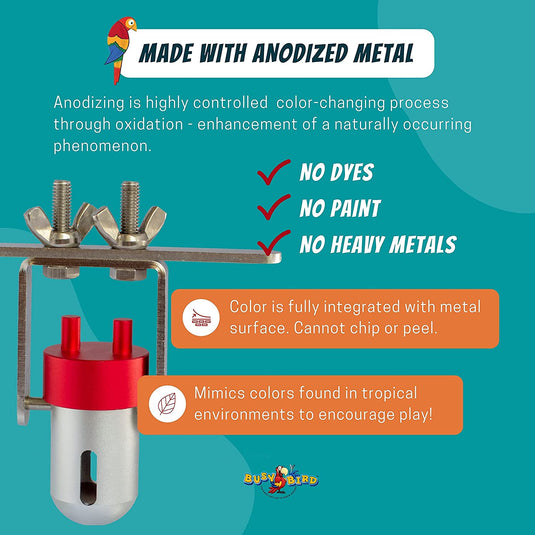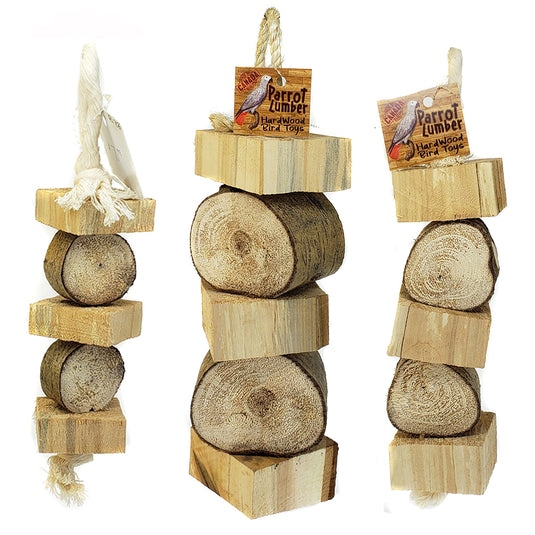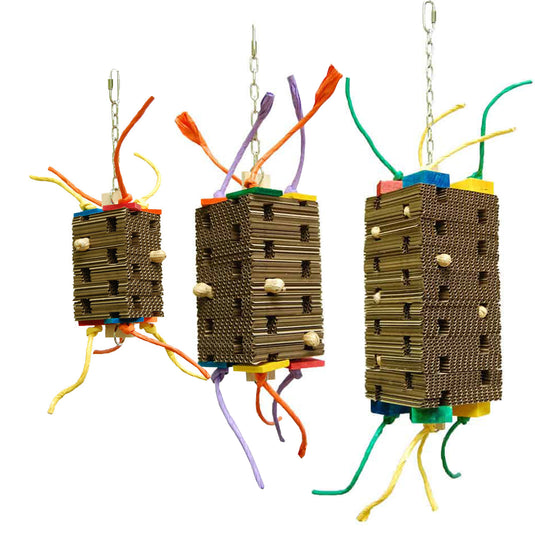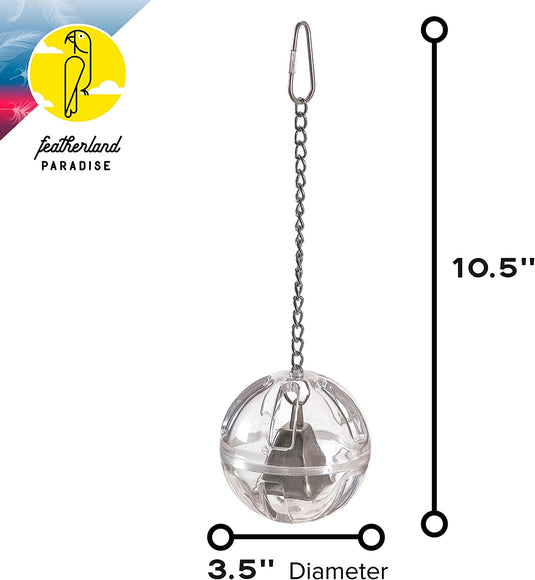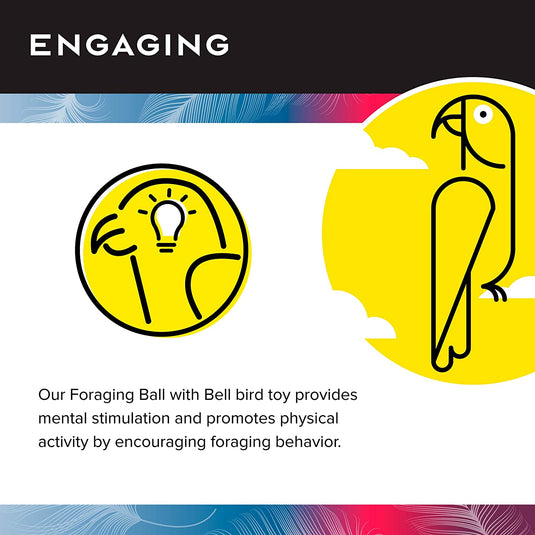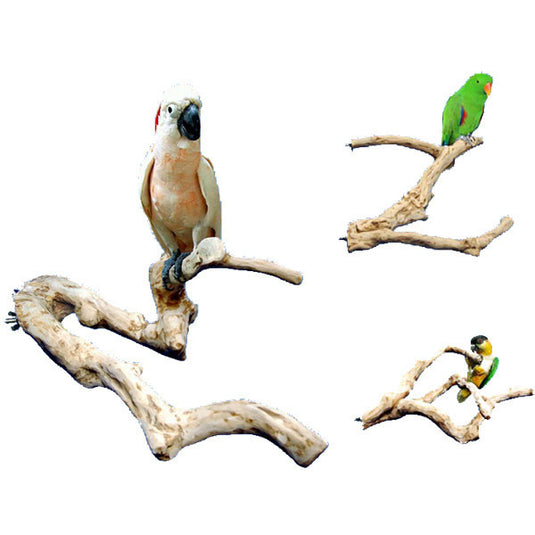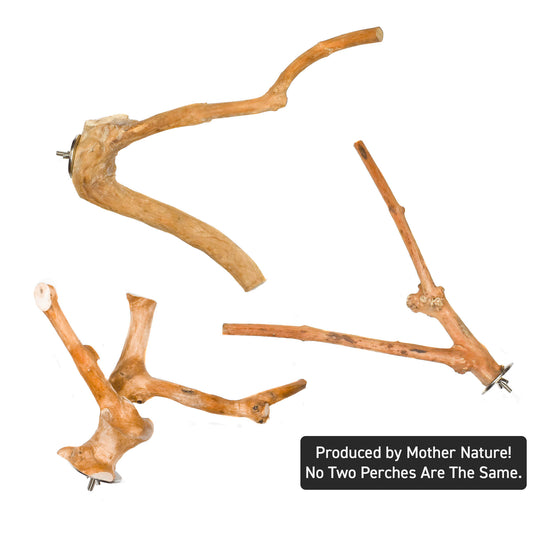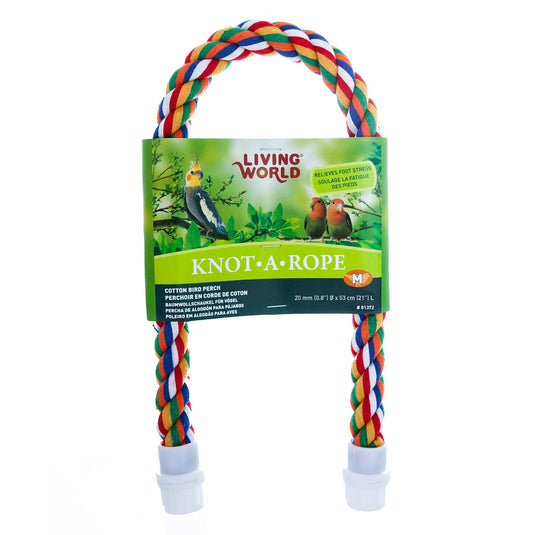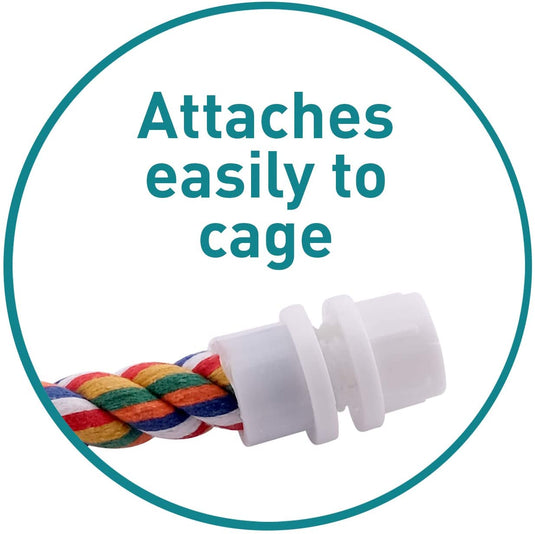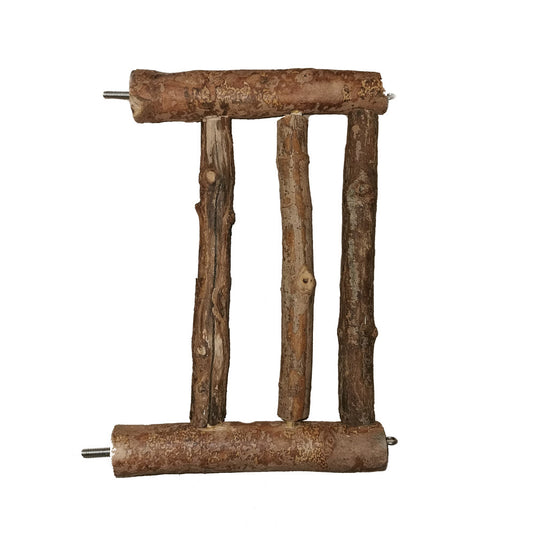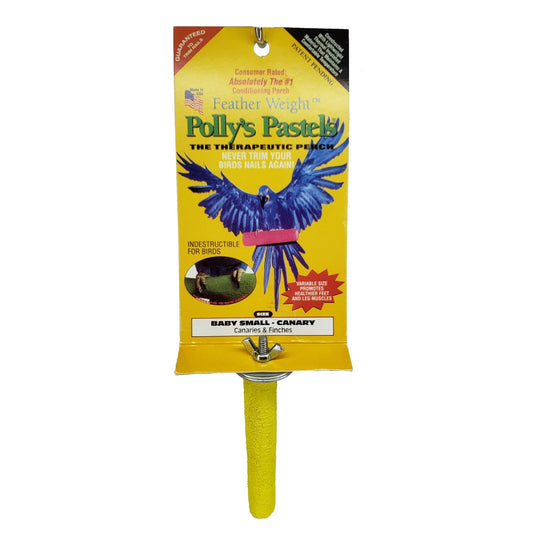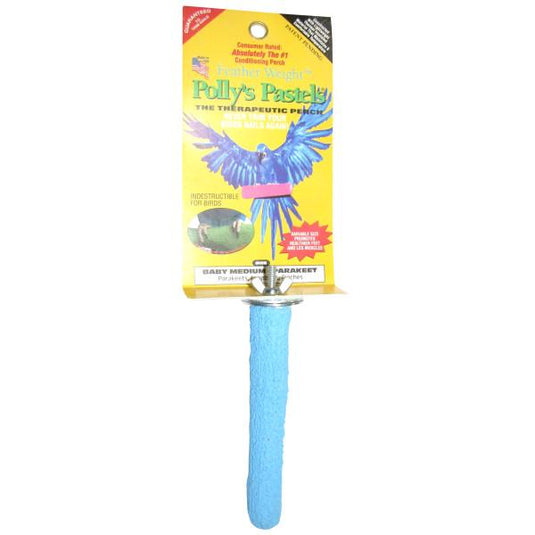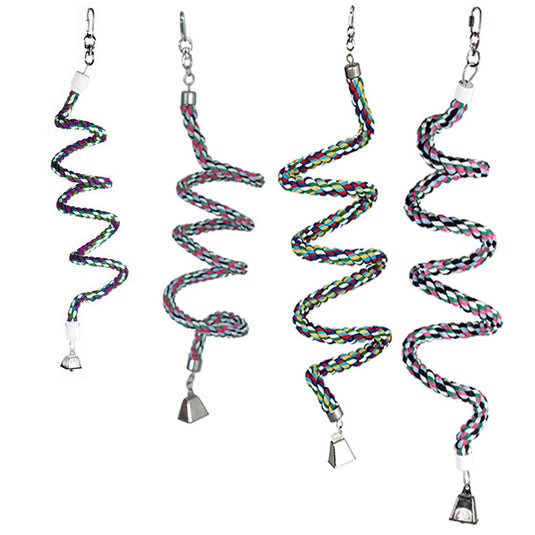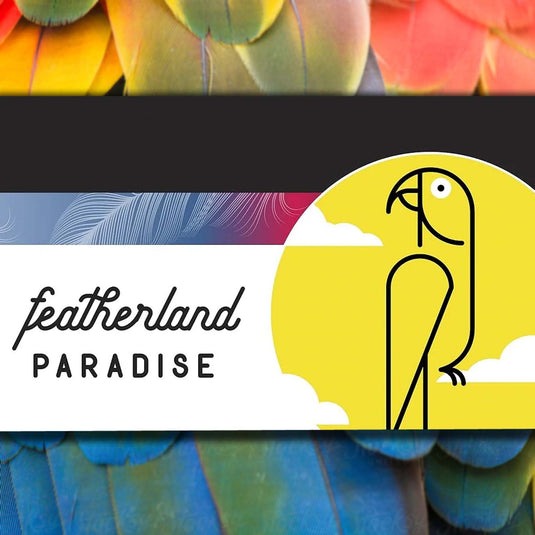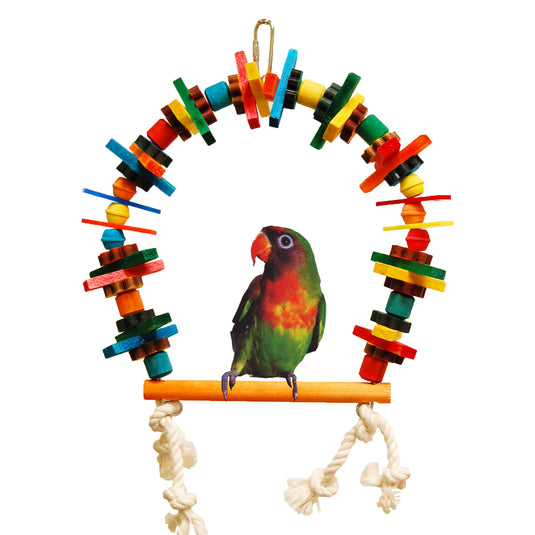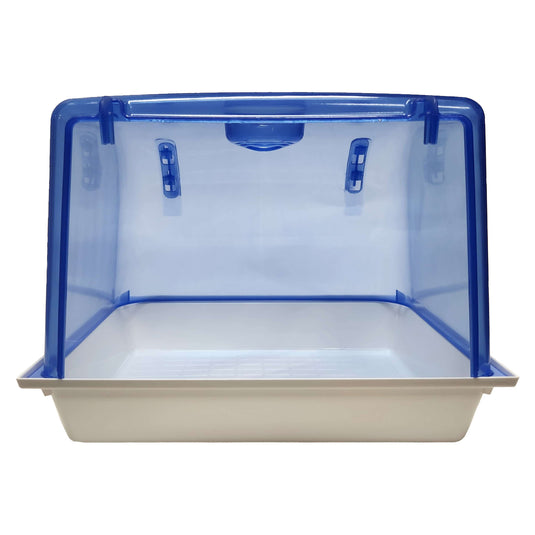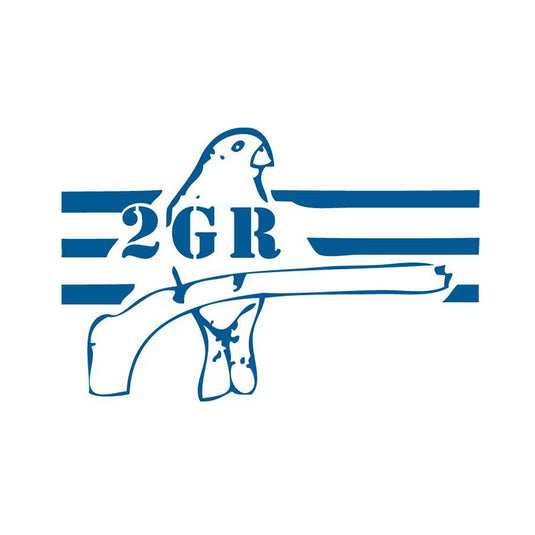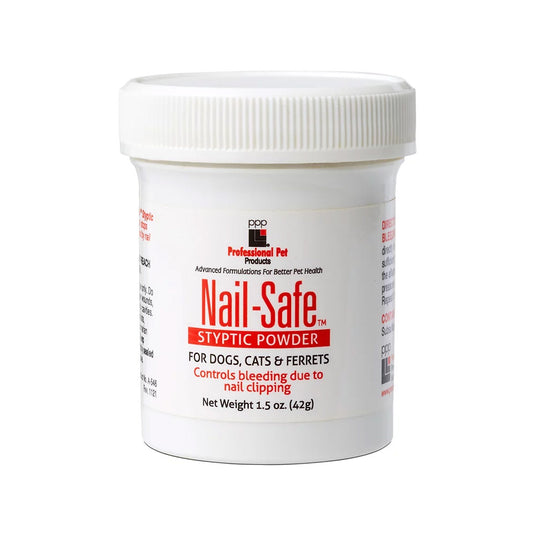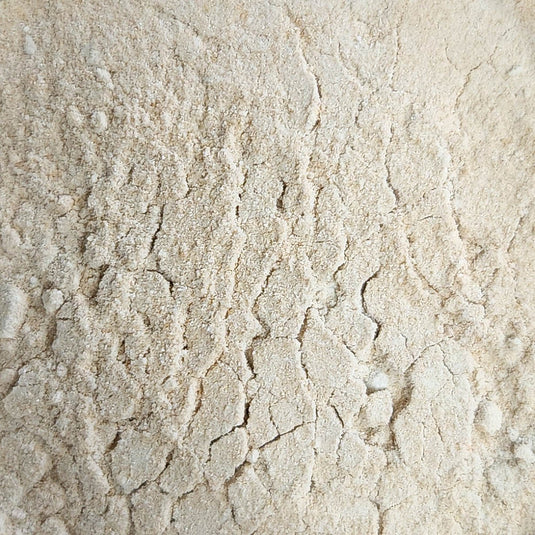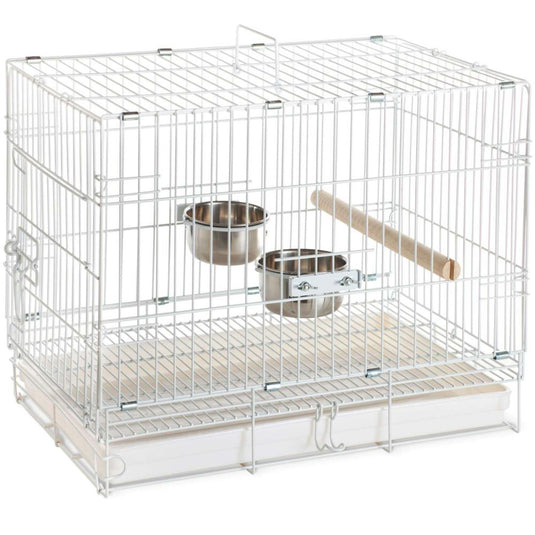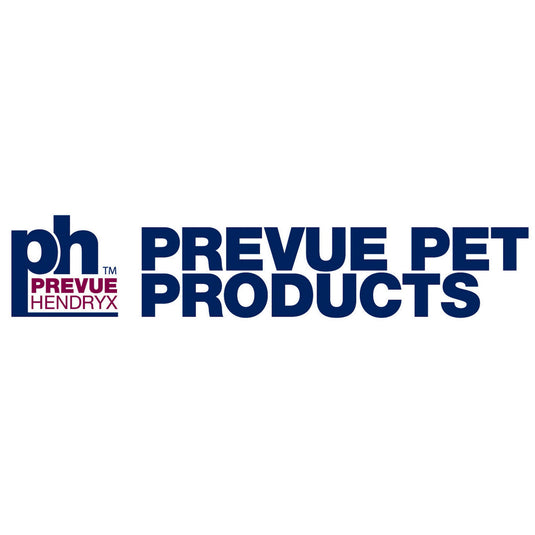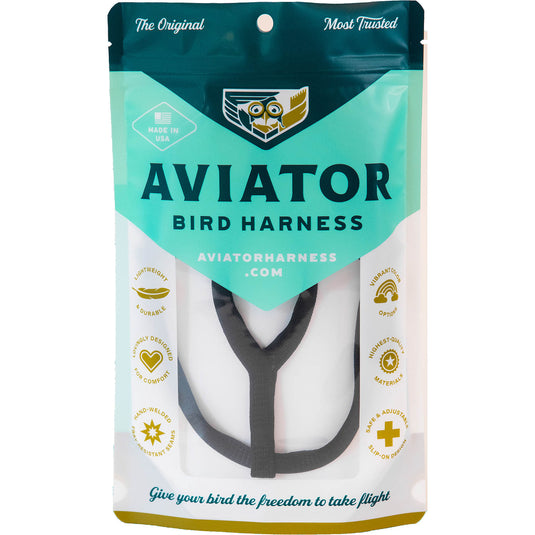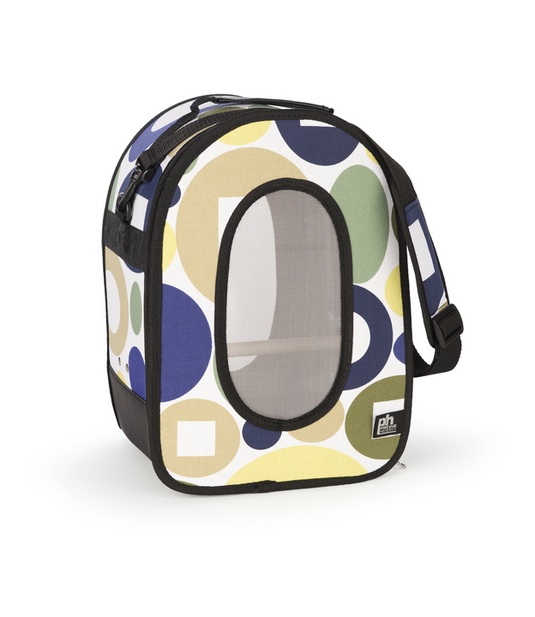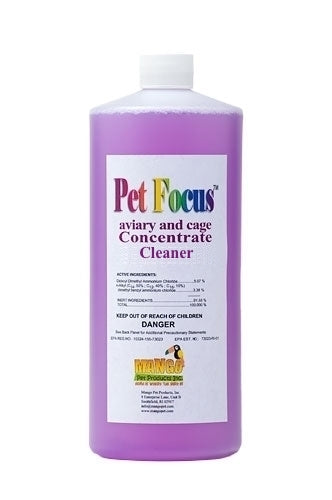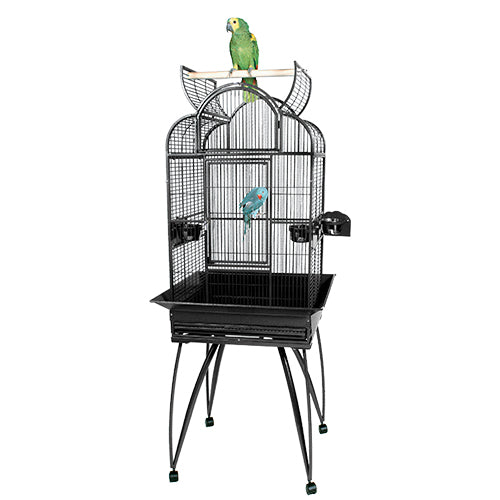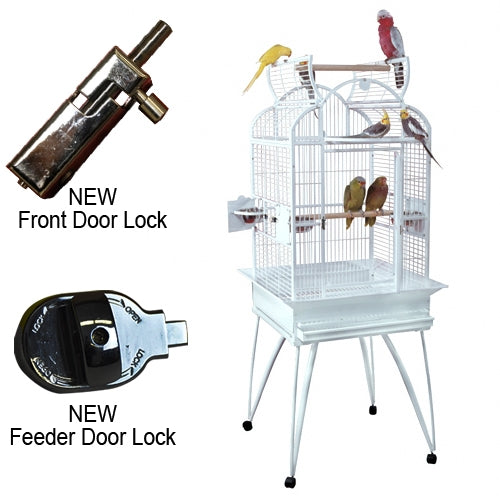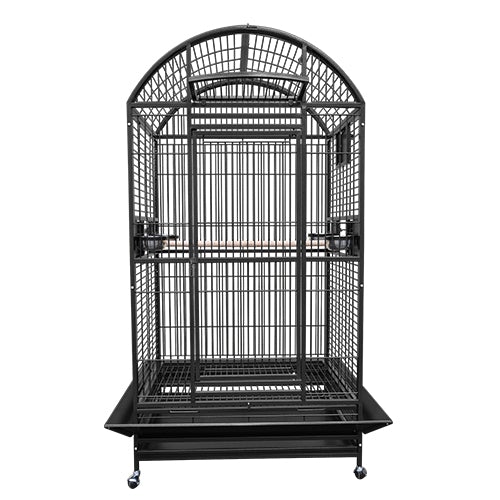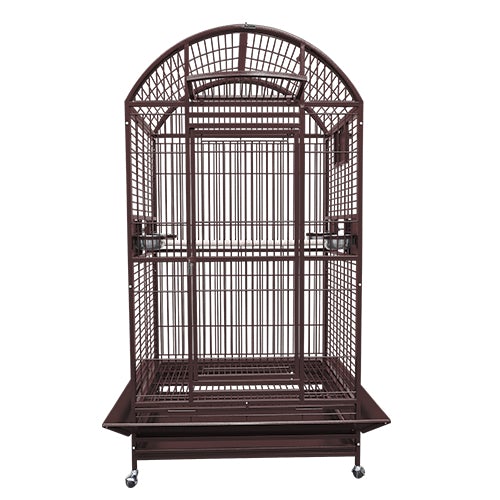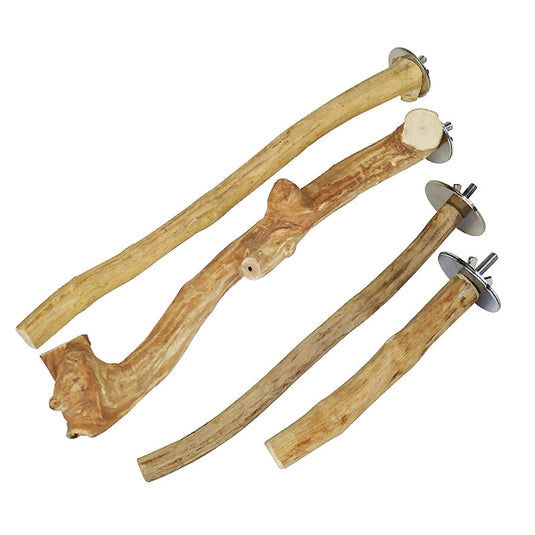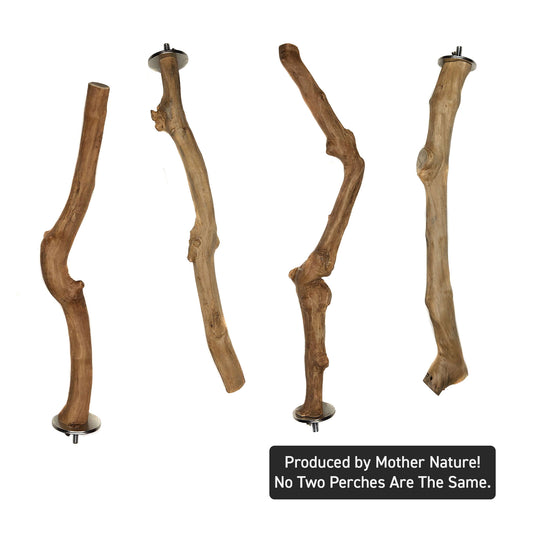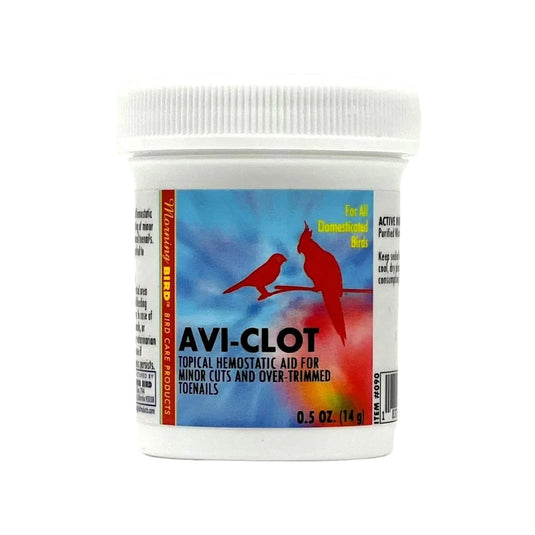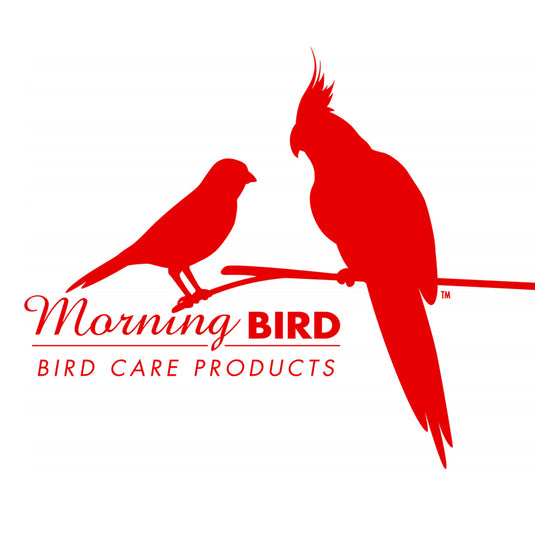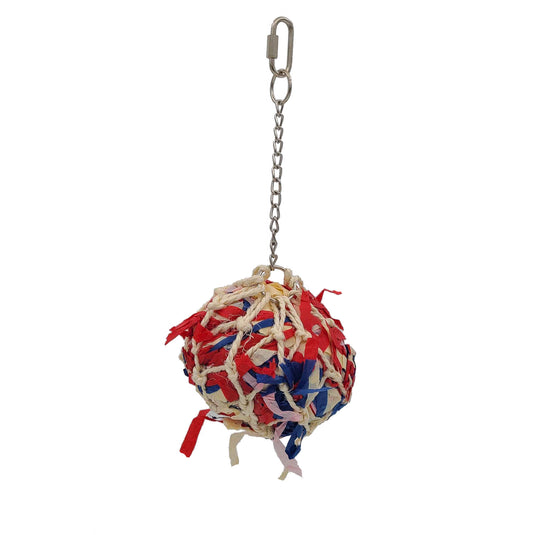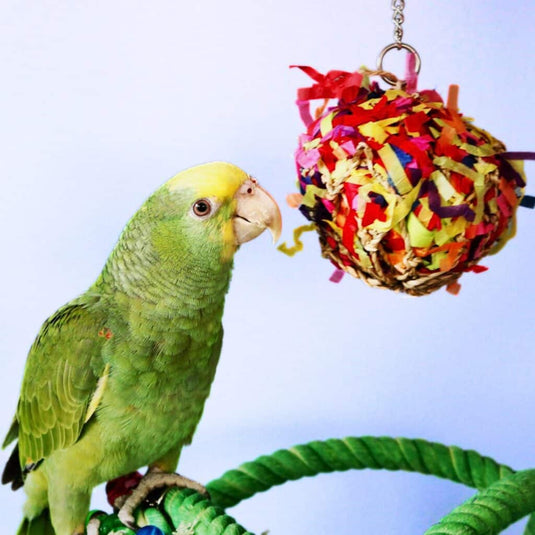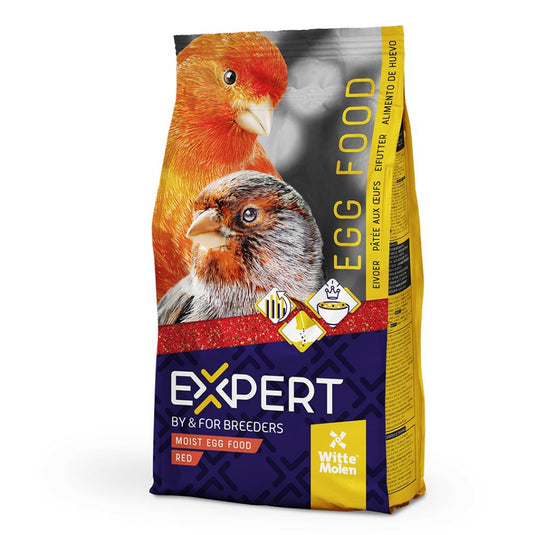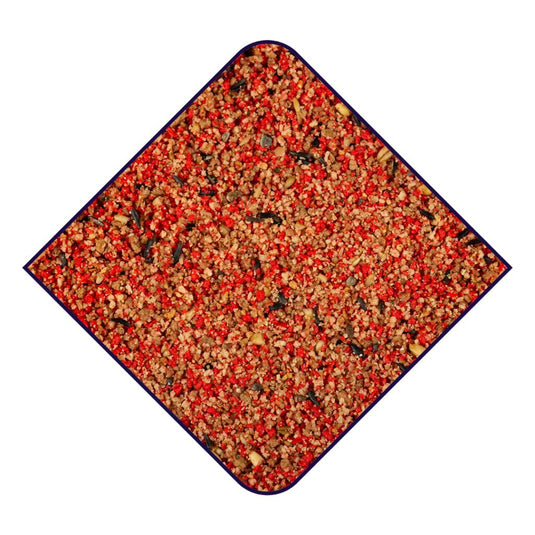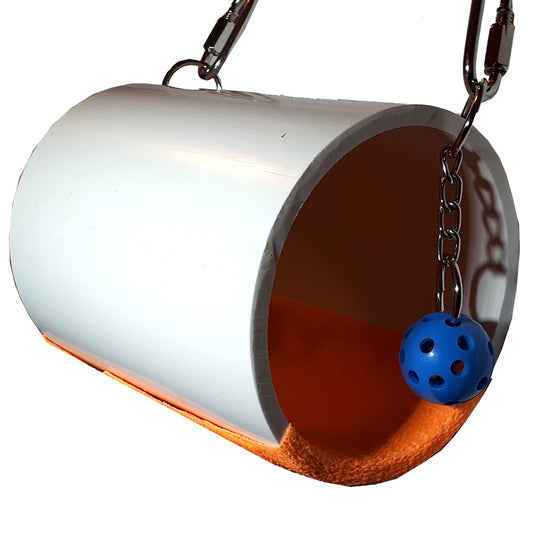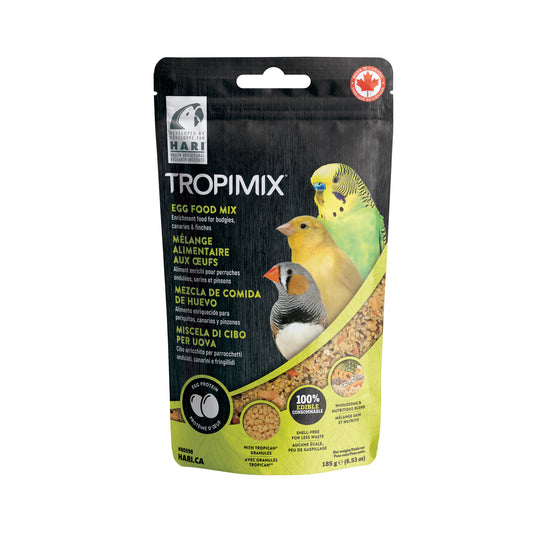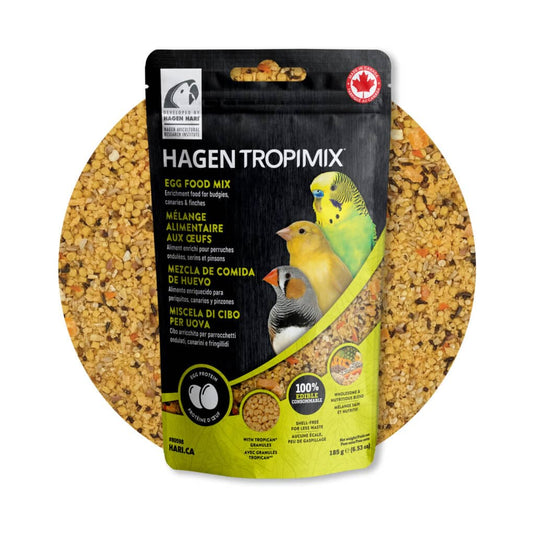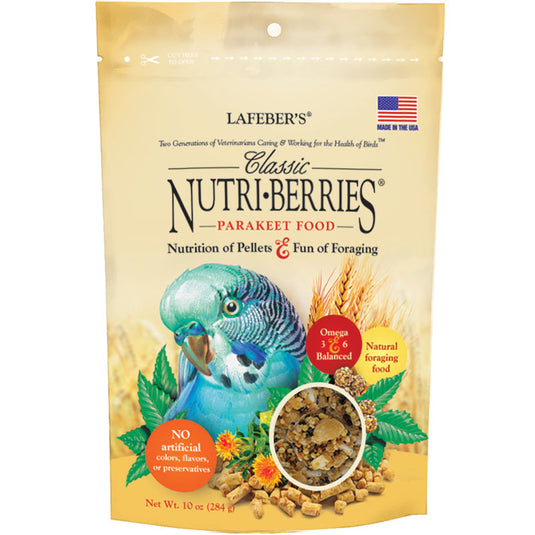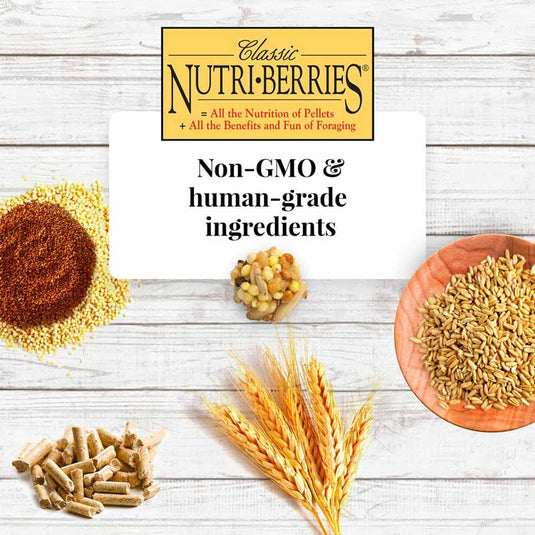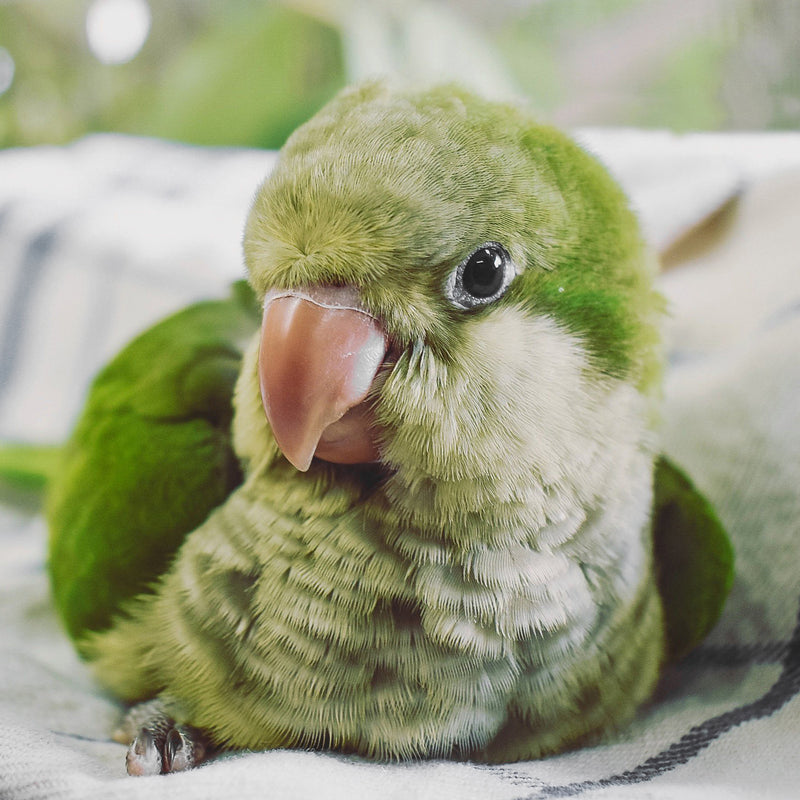
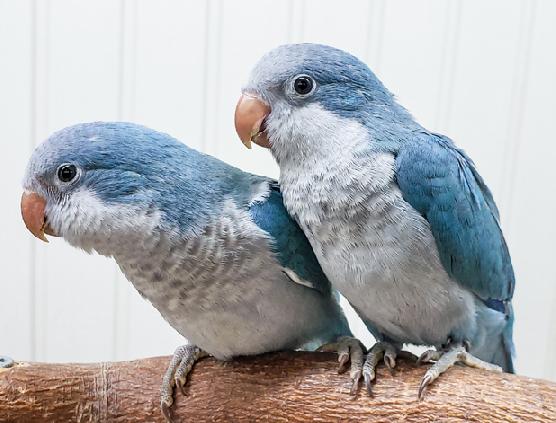
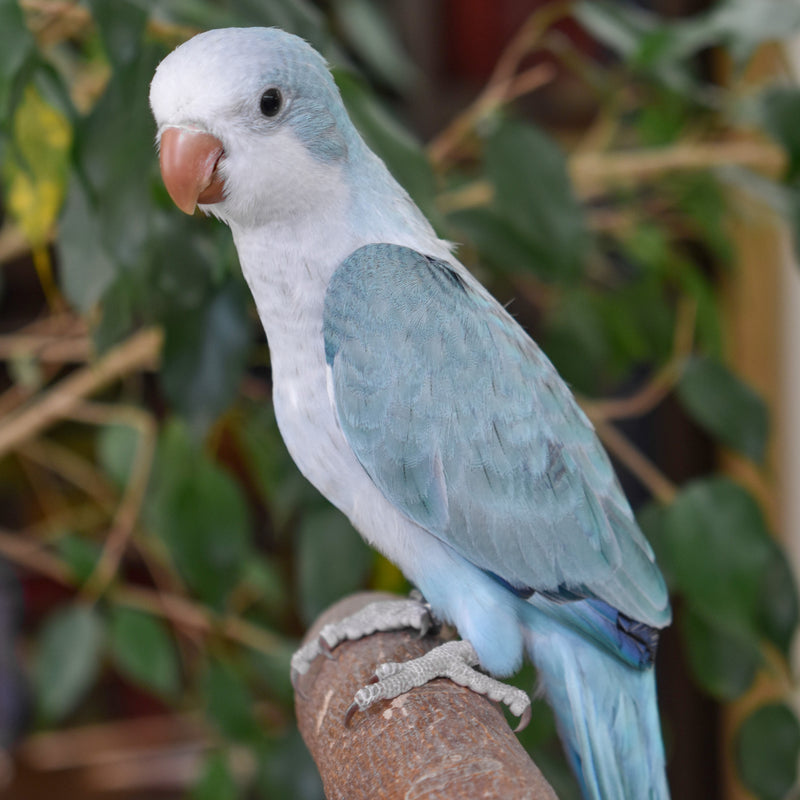
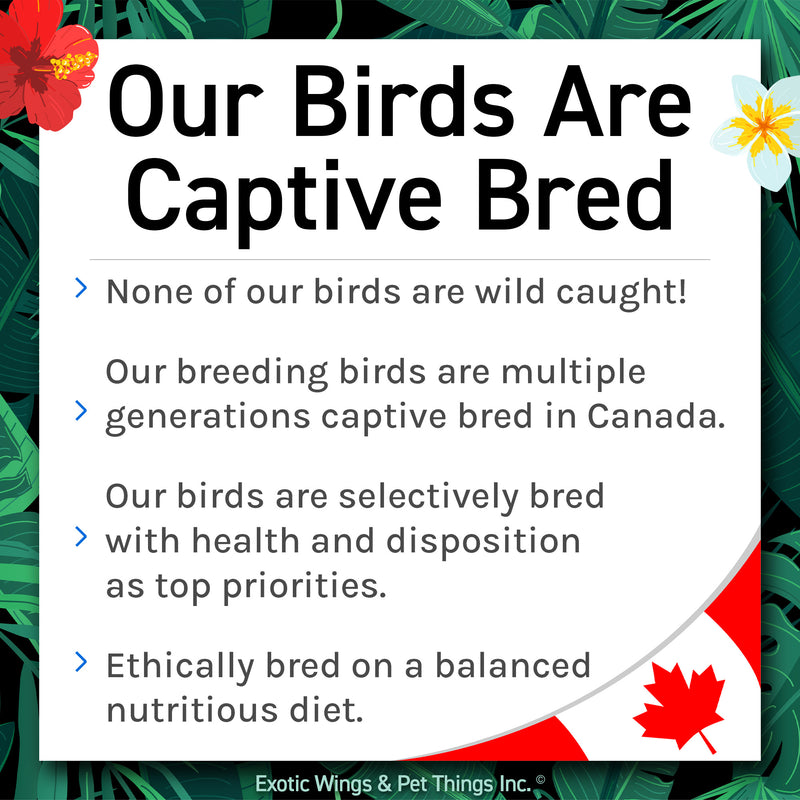
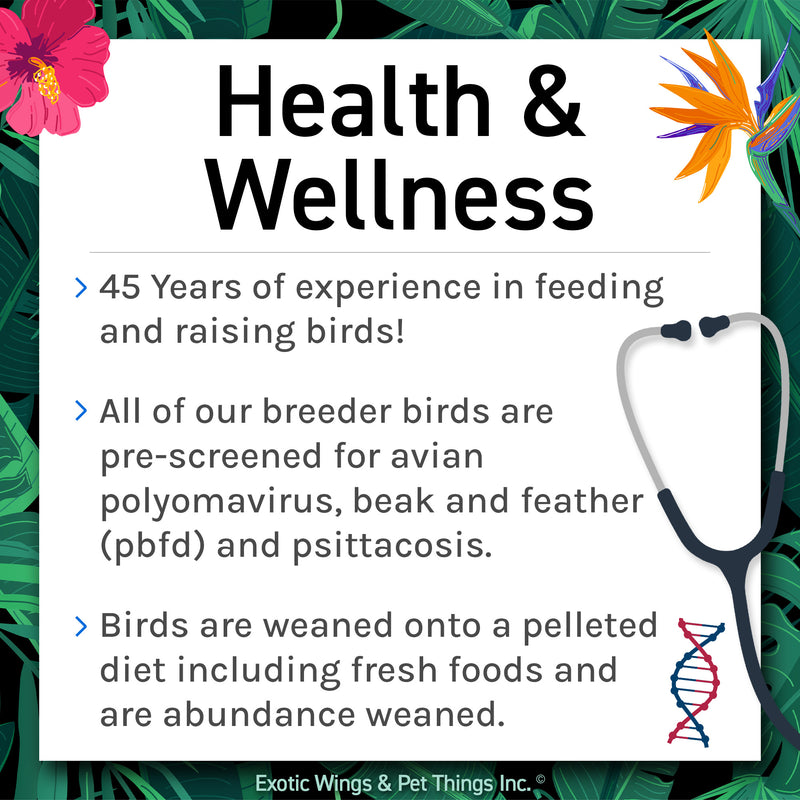
| Common Name | Quaker, Monk Parakeet |
| Latin Name | Myiopsitta monachus |
| Average Lifespan | 25 - 30 Years |
| Average Length | 30 cm (12 Inches) |
| Average Weight | 127 - 140 Grams |
| Song Type | Shrill Calls |
Noise Level & Talking Ability
Quakers are very vocal parrots. They can be trained to talk, and easily keep up with African Greys and ring-necked parakeets. At times these birds can be noisy, so apartment living may not be advisable. Individual experiences vary. Noisier households will tend to have noisier birds, as birds are highly sensitive to environmental stimulus.
Physical Features
Green:
General plumage green; forehead bluish-grey; lores, cheeks and throat whitish-grey; breast brownish-grey, each feather edged with pale grey; upper abdomen olive-yellow; lower abdomen, rump, thighs and upper tail-coverts yellowish-green; outer webs of flight feathers blue; tail upper side green with blue down centre; underside pale green with grayish-blue base; periophthalmic ring grey; bill brownish-horn colour; iris dark brown; feet grey. Immatures with forehead tinged greenish.
Green Opaline:
Limey green with eye-catching, dark feather veins in the back and wings. The face and forehead often appear yellowish, especially in young birds. Because of this, some call this mutation "yellowface" however that term is not agreed on as being correct. The flight feathers are deep blue at the tips and gradually fade to almost white as they get closer to the body. The tail is green like the back, and often has bluish colour at the tip. Eyes, beak, and feet are the same as in normal quakers.
Blue:
Blue and gray in colour. Quakers tend to be temperamental but blue Quakers are noted to be slightly sweeter than the green. Naturally, this depends on the individual bird.
Blue Opaline:
Light sky blue overall with a whitish face and forehead. Breast and belly light grey. Eye, beak and feet are the same colour as in a normal quaker. The feathers on the back, wings and tail have dark veins which adds quite a striking appearance on the light background. Flight feathers darker toward the tip and become lighter closer to the body, eventually becoming almost white. The tail varies in colour from powder blue to deep blue.
Turquoise / Aqua:
Turquoise and Aqua are both parblue mutations. This means they reduce Psittacin (yellow pigment) partially but not fully. These birds are fairly uncommon, especially in Canada. Turquoise and Aqua are said to be two different mutations, where turquoise is more green and the colour is patchier and Aqua is more blue and uniformly spread. The exact look of these birds can vary a lot, but generally speaking there will be green tones, blue tones, and mixes of the two. The breast is still greyish, and the eyes, beak, and feet are not affected by this mutation.
Pet Profile
Quakers are extremely rewarding pets to own. They are highly intelligent and capable of learning many tricks and phrases. For this reason we tend to recommend quakers to people who have previous parrot experience and are confident in handling, training, and proper disciplining. While these guys are considered medium-sized, their brain power and capabilities have them rolling with the big shots. Like any relationship, there is give and there is take.
Quakers are affectionate birds and tend to bond strongly to one or two people. They can still make good family pets, proper socialization is key to success here. They enjoy being the centre of attention, often showing off their vocabulary and tricks any chance they get!
Diet
Pellets should be free-fed and available at all times, as should fresh water. Vegetables, herbs, grains, and legumes should be offered daily. Fruit can be offered every few days as it tends to be less nutritionally dense. Any fresh foods not consumed within 3 hours should be composted. Seeds and nuts can be used as a training treat, or offered in a controlled amount as a treat in a dish. Sprouting seeds helps to make them a healthier item to consume, if your quaker insists on eating a seed-based diet.
Housing
Quakers benefit from having lots of space. They do not stress easily, and therefore do not mind having a large cage. These birds have long tails, improper housing such as too small of a cage, or too narrow of bar spacing, may rat and tatter the tail. By nature quakers are nest builders, so we don't typically recommend snuggle huts to this species. Many people have used these without issue, though. Foraging and puzzle toys are important to keep their mind stimulated and prevent boredom. Perches should have a variety of textures and diameters to ensure the feet are being properly exercised and prevent issues down the road.
Breeding Information
| Age of Maturity | 18 months - 2 Years |
| Breeding Aviculture | Common |
| Average Clutch Size | 4 - 5 Eggs |
| Nest Box | 8 x 16 Inch |
| Breeding Life | 20 - 25 Years |
Wild Status
Stable - Increasing
Last assessed August 2018 for the IUCN Red List.
- Our website has an abundance of information about species, behaviour, talking ability, and ownership essentials you may need to begin. This is a great place to start narrowing down your search for the bird best suited for your family. Once you have researched various bird species and narrowed down your choices, please contact us via phone or email to create an appointment to meet the birds and ask any questions you may have in regards to care, nutrition, and the best fit for your home.
- We will set up a date and time for you to meet the bird(s). We will notify you of our current protocols and procedures. If you have decided on a specific bird, we recommend that you put a deposit on it. Birds will not be held without a minimum 50% deposit. If you put down a deposit before meeting the bird and after meeting the bird decide it is not a good fit, we can refund your the deposit in full. If you are placing a deposit prior to meeting a bird, your appointment to meet the bird must be within the following week.
- If you are meeting a bird(s) that is not weaned, you will not be able to take the bird home that same day. If you are meeting a bird that is weaned, and you are properly prepared to have the new bird in your home, we will go over a care sheet and answer any questions you have during your appointment. If that is too soon, and your home is not ready, you can book a pick-up appointment within the following week. Again, to reserve a bird you must put down at least a 50% deposit or payment in full.
- When your bird is weaned and ready to go home you will receive an email with the following information
• A link to our care sheet in printable PDF form.
• A link to book a timeslot for your care sheet / bird pick-up.
• A link to the food your bird is eating as well as toys, treats, and other essential items to start your new adventure!
- Read the care sheet, write down any questions you have, ensure you’ve got the correct food and a proper variety of toys and perches, as well as a suitable cage. Then book your pick-up appointment! Please show up within 5 minutes of the appointment start time. If you have a carrier for your new bird, feel free to bring it. We can provide a travel box if needed.
If you have additional questions about how to purchase one of our birds please take a look at our FAQ's for purchasing a new bird:
Before You Buy
We offer a seven-day health guarantee on our handfed birds. A mandatory educational care sheet will be gone over at time of purchase. You must provide your bird with suitable shelter, food, water, vitamins and minerals from time of purchase.
We suggest that within three days (72 hours) of purchase, you bring your bird to an avian vet for a complete examination. This is at the cost of the pet owner. Should any health problem occur or be discovered, inform us IMMEDIATELY, with a written report otherwise the health guarantee is void. Any veterinary fees at this point need to be cleared by Exotic Wings & Pet Things Inc.
The health guarantee does not apply if there is another bird in your home that was not purchased from Exotic Wings & Pet Things Inc. or if the bird leaves the store unclipped.
We cannot guarantee the gender or temperament of your bird. Our handfed birds are tame but may take some time to adjust to their new surroundings. The more time is spent socializing with your pet bird after they have settled into your household, the better your relationship with your pet will be. After the seven day period any warranty will be at the discretion of Exotic Wings & Pet Things Inc.

Shower your feathered friend (or furry companion!) with love and rewards at Exotic Wings! Our customer rewards program makes it easy to earn points and save on everything you need to keep your pet happy and healthy. Simply create a free account and you're automatically enrolled. Every dollar spent (excluding taxes and shipping) earns you a point, and those points add up quickly to valuable discounts! Redeem your points at checkout for savings on a variety of bird food, treats, toys, cages, and other pet essentials. We also offer bonus points for referring friends, so spread the love and watch your rewards grow even faster! Sign up today and start earning rewards on all your pet purchases at Exotic Wings!
Our program currently consists of both points & referrals!
Access your rewards by clicking the blue rewards widget on the bottom left of your screen.
Points:
- For every dollar you spend (excluding taxes and shipping) you are rewarded a point!
- Spend your points on discount codes which can be redeemed at checkout.
- 500 Points = $10.00 off an order over $50.00.
- 1000 Points = $25.00 off an order over $100.00.
Referrals:
- Sign into your account and share your referral link!
- Located in the rewards widget on the bottom right of your screen.
- They get a $5 off discount (For orders over $50.00)
- You get a bonus 25 Point for each successful referral.
Have questions about our rewards program? View rewards FAQ's.
| Common Name | Quaker, Monk Parakeet |
| Latin Name | Myiopsitta monachus |
| Average Lifespan | 25 - 30 Years |
| Average Length | 30 cm (12 Inches) |
| Average Weight | 127 - 140 Grams |
| Song Type | Shrill Calls |
Noise Level & Talking Ability
Quakers are very vocal parrots. They can be trained to talk, and easily keep up with African Greys and ring-necked parakeets. At times these birds can be noisy, so apartment living may not be advisable. Individual experiences vary. Noisier households will tend to have noisier birds, as birds are highly sensitive to environmental stimulus.
Physical Features
Green:
General plumage green; forehead bluish-grey; lores, cheeks and throat whitish-grey; breast brownish-grey, each feather edged with pale grey; upper abdomen olive-yellow; lower abdomen, rump, thighs and upper tail-coverts yellowish-green; outer webs of flight feathers blue; tail upper side green with blue down centre; underside pale green with grayish-blue base; periophthalmic ring grey; bill brownish-horn colour; iris dark brown; feet grey. Immatures with forehead tinged greenish.
Green Opaline:
Limey green with eye-catching, dark feather veins in the back and wings. The face and forehead often appear yellowish, especially in young birds. Because of this, some call this mutation "yellowface" however that term is not agreed on as being correct. The flight feathers are deep blue at the tips and gradually fade to almost white as they get closer to the body. The tail is green like the back, and often has bluish colour at the tip. Eyes, beak, and feet are the same as in normal quakers.
Blue:
Blue and gray in colour. Quakers tend to be temperamental but blue Quakers are noted to be slightly sweeter than the green. Naturally, this depends on the individual bird.
Blue Opaline:
Light sky blue overall with a whitish face and forehead. Breast and belly light grey. Eye, beak and feet are the same colour as in a normal quaker. The feathers on the back, wings and tail have dark veins which adds quite a striking appearance on the light background. Flight feathers darker toward the tip and become lighter closer to the body, eventually becoming almost white. The tail varies in colour from powder blue to deep blue.
Turquoise / Aqua:
Turquoise and Aqua are both parblue mutations. This means they reduce Psittacin (yellow pigment) partially but not fully. These birds are fairly uncommon, especially in Canada. Turquoise and Aqua are said to be two different mutations, where turquoise is more green and the colour is patchier and Aqua is more blue and uniformly spread. The exact look of these birds can vary a lot, but generally speaking there will be green tones, blue tones, and mixes of the two. The breast is still greyish, and the eyes, beak, and feet are not affected by this mutation.
Pet Profile
Quakers are extremely rewarding pets to own. They are highly intelligent and capable of learning many tricks and phrases. For this reason we tend to recommend quakers to people who have previous parrot experience and are confident in handling, training, and proper disciplining. While these guys are considered medium-sized, their brain power and capabilities have them rolling with the big shots. Like any relationship, there is give and there is take.
Quakers are affectionate birds and tend to bond strongly to one or two people. They can still make good family pets, proper socialization is key to success here. They enjoy being the centre of attention, often showing off their vocabulary and tricks any chance they get!
Diet
Pellets should be free-fed and available at all times, as should fresh water. Vegetables, herbs, grains, and legumes should be offered daily. Fruit can be offered every few days as it tends to be less nutritionally dense. Any fresh foods not consumed within 3 hours should be composted. Seeds and nuts can be used as a training treat, or offered in a controlled amount as a treat in a dish. Sprouting seeds helps to make them a healthier item to consume, if your quaker insists on eating a seed-based diet.
Housing
Quakers benefit from having lots of space. They do not stress easily, and therefore do not mind having a large cage. These birds have long tails, improper housing such as too small of a cage, or too narrow of bar spacing, may rat and tatter the tail. By nature quakers are nest builders, so we don't typically recommend snuggle huts to this species. Many people have used these without issue, though. Foraging and puzzle toys are important to keep their mind stimulated and prevent boredom. Perches should have a variety of textures and diameters to ensure the feet are being properly exercised and prevent issues down the road.
Breeding Information
| Age of Maturity | 18 months - 2 Years |
| Breeding Aviculture | Common |
| Average Clutch Size | 4 - 5 Eggs |
| Nest Box | 8 x 16 Inch |
| Breeding Life | 20 - 25 Years |
Wild Status
Stable - Increasing
Last assessed August 2018 for the IUCN Red List.
- Our website has an abundance of information about species, behaviour, talking ability, and ownership essentials you may need to begin. This is a great place to start narrowing down your search for the bird best suited for your family. Once you have researched various bird species and narrowed down your choices, please contact us via phone or email to create an appointment to meet the birds and ask any questions you may have in regards to care, nutrition, and the best fit for your home.
- We will set up a date and time for you to meet the bird(s). We will notify you of our current protocols and procedures. If you have decided on a specific bird, we recommend that you put a deposit on it. Birds will not be held without a minimum 50% deposit. If you put down a deposit before meeting the bird and after meeting the bird decide it is not a good fit, we can refund your the deposit in full. If you are placing a deposit prior to meeting a bird, your appointment to meet the bird must be within the following week.
- If you are meeting a bird(s) that is not weaned, you will not be able to take the bird home that same day. If you are meeting a bird that is weaned, and you are properly prepared to have the new bird in your home, we will go over a care sheet and answer any questions you have during your appointment. If that is too soon, and your home is not ready, you can book a pick-up appointment within the following week. Again, to reserve a bird you must put down at least a 50% deposit or payment in full.
- When your bird is weaned and ready to go home you will receive an email with the following information
• A link to our care sheet in printable PDF form.
• A link to book a timeslot for your care sheet / bird pick-up.
• A link to the food your bird is eating as well as toys, treats, and other essential items to start your new adventure!
- Read the care sheet, write down any questions you have, ensure you’ve got the correct food and a proper variety of toys and perches, as well as a suitable cage. Then book your pick-up appointment! Please show up within 5 minutes of the appointment start time. If you have a carrier for your new bird, feel free to bring it. We can provide a travel box if needed.
If you have additional questions about how to purchase one of our birds please take a look at our FAQ's for purchasing a new bird:
Before You Buy
We offer a seven-day health guarantee on our handfed birds. A mandatory educational care sheet will be gone over at time of purchase. You must provide your bird with suitable shelter, food, water, vitamins and minerals from time of purchase.
We suggest that within three days (72 hours) of purchase, you bring your bird to an avian vet for a complete examination. This is at the cost of the pet owner. Should any health problem occur or be discovered, inform us IMMEDIATELY, with a written report otherwise the health guarantee is void. Any veterinary fees at this point need to be cleared by Exotic Wings & Pet Things Inc.
The health guarantee does not apply if there is another bird in your home that was not purchased from Exotic Wings & Pet Things Inc. or if the bird leaves the store unclipped.
We cannot guarantee the gender or temperament of your bird. Our handfed birds are tame but may take some time to adjust to their new surroundings. The more time is spent socializing with your pet bird after they have settled into your household, the better your relationship with your pet will be. After the seven day period any warranty will be at the discretion of Exotic Wings & Pet Things Inc.

Shower your feathered friend (or furry companion!) with love and rewards at Exotic Wings! Our customer rewards program makes it easy to earn points and save on everything you need to keep your pet happy and healthy. Simply create a free account and you're automatically enrolled. Every dollar spent (excluding taxes and shipping) earns you a point, and those points add up quickly to valuable discounts! Redeem your points at checkout for savings on a variety of bird food, treats, toys, cages, and other pet essentials. We also offer bonus points for referring friends, so spread the love and watch your rewards grow even faster! Sign up today and start earning rewards on all your pet purchases at Exotic Wings!
Our program currently consists of both points & referrals!
Access your rewards by clicking the blue rewards widget on the bottom left of your screen.
Points:
- For every dollar you spend (excluding taxes and shipping) you are rewarded a point!
- Spend your points on discount codes which can be redeemed at checkout.
- 500 Points = $10.00 off an order over $50.00.
- 1000 Points = $25.00 off an order over $100.00.
Referrals:
- Sign into your account and share your referral link!
- Located in the rewards widget on the bottom right of your screen.
- They get a $5 off discount (For orders over $50.00)
- You get a bonus 25 Point for each successful referral.
Have questions about our rewards program? View rewards FAQ's.






